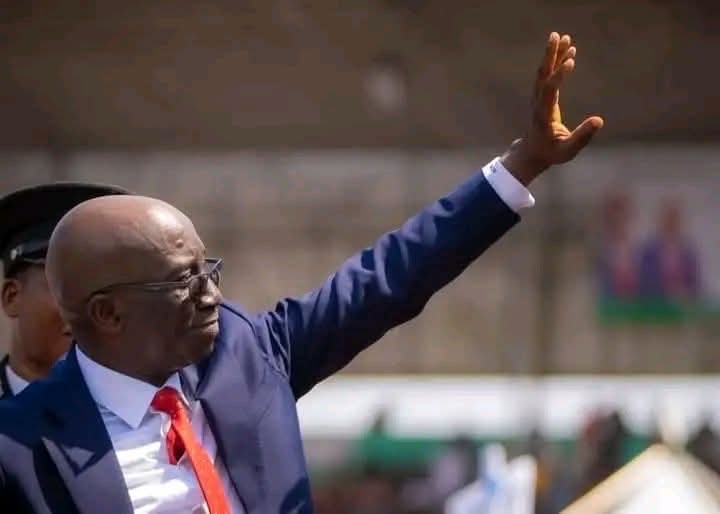Latterday friends of mine get surprised when they hear that I am a fan of Fela.Anikulapo Kuti. They feel I’m too tame for that. Mistake! Indeed, I was a patron of Fela’s Shrine at Pepple Street, Ikeja, Lagos.
One of Fela’s numbers, Perambulator, came to my mind, as I thought about the banking industry.
I read the figures posted by one of the banks, which fancies itself among the best in class. It claimed to be the nearest to the N500 billion recapitalisation target that the Central Bank of Nigeria (CBN) governor, Olayemi Cardoso, set for them. But it will still go to the capital market, it said.
A good number of others have stepped into the market already with both fresh issues and rights issue.
I wondered how many Nigerians would rush for their shares. Unlike 2005, when Chukwuma Soludo, as CBN governor, carried out his banking recapitalization, and almost all Nigerians rushed to buy their shares, who would want bank shares now?
Soludo meant well and shored up Nigerian banking sector, saving it from the banking storm that swept the globe two years later. But weak capital market regulations ensured that both serious and practically unqualified banks (and other institutions) accessed the market and ended up defrauding the public. After that experience, how many Nigerians would want to buy banking stocks? Now that this sector has lost its lustre and the confident young men and ladies who bestrode the banking halls, who would market the banks?
Of course, institutional investors whose interests may not be in the open will buy. But how many are they now? We watch and see. One sure thing, though, is that it will be a totally different game from the 2006 scenario.
In place of citizen investors who dug in for the long run, we may have more of portfolio investments which seek short-term profit and will scamper at the first sign of trouble. If this happens, it will leave Nigerian banks more vulnerable.
But beyond the speculation as to who will buy, a fundamental issue is the purpose of the recapitalization exercise. Like the one before this, it is meant at shoring up the capital base of Nigerian banks.
Wasn’t that what Soludo did in 2005? Yes, that was what he did. Didn’t he succeed? He succeeded, moving the minimum capitalisation of Nigerian banks from N2 billion to N25 billion. Indeed, he succeeded beyond set purpose, producing a Nigerian banking sector that thrived when global banking went into crisis in 2008.
Indeed, within two years of the Soludo exercise, some Nigerian banks, led by Intercontinental Bank attained billion dollar capitalisation. So, how come Nigerian banks have sunk so low that in dollar terms, the new recapitalization target is less than 25 percent of the capital base attained by Intercontinental and a few others then? The simple answer is government irresponsibility!
Yes, most of the new billion dollar Nigerian banks then didn’t quite know how to deploy their new muscle, but that’s not why the sector failed. The banking sector dropped to penny stocks because the government devalued the naira and rendered them hollow!
And the Tinubu government is the worst culprit as far as this is concerned. Within the space of one year, private sector concerns needed three times more naira to get one dollar. A capital base of N1.5 trillion is what now makes a billion dollars. Nigerian businesses would need that much to attain the status that some of them had attained by 2008.
The private sector carries the can for the mess of government, while government officials win in every direction.
The previous government of Muhammadu Buhari allowed a yawning gap between the official and unofficial exchange rates. Government benefitted from it as the unofficial market dragged the official market down. As a result, a handful of dollars earned from oil export was enough to meet fixed naira expenses, like salaries.
Friends of the government benefitted from it through round tripping. And members of this government were among the beneficiaries. Coming into power, the new government decided to do the needful – merge the double lane forex avenues. Again, who benefits? Friends of government.
If I have privileged information that the naira would be devalued, I would take the rational economic decision to stockpile my savings in forex. The government executes its plan, floating the naira in feigned innocence, knowing, however, which way the waters would flow.
As expected, the banks will try to meet the minimum requirements to stay alive. Those which succeed will practically live at the mercy of the government till the next round of monetary policy prodigality.
Like Fela sang, perambulator will turn right and left, but e still dey for same same place. That’s how it is with Nigeria’s banking sector and its capitalisation. Indeed, it is worse with the banking sector. Fela’s perambulator remains in the same place. But the fate of the banking sector is a leap in reverse.


